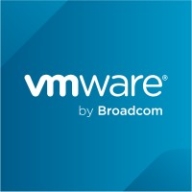

vRealize Network Insight and Azure Bastion exist within the network management and security category. vRealize Network Insight seems to have the upper hand in providing comprehensive network visibility and monitoring, while Azure Bastion stands out for secure connectivity without public IPs.
Features: vRealize Network Insight offers advanced analytics, visualization, and network operations management. It provides insights into infrastructure performance and security. Azure Bastion focuses on security with seamless remote desktop protocol (RDP) and secure shell (SSH) connectivity, eliminating the exposure of virtual machines to the public internet.
Room for Improvement: vRealize Network Insight could benefit from simplified deployment, enhanced user interface, and reduced configuration complexity. Azure Bastion might improve by increasing its integration options, adding more detailed monitoring capabilities, and offering more customization possibilities.
Ease of Deployment and Customer Service: vRealize Network Insight involves complex deployment, requiring extensive configuration, and while customer service is supportive, it demands expertise for optimal use. Azure Bastion benefits from straightforward deployment via the Azure portal and comprehensive support from Microsoft, aided by extensive documentation.
Pricing and ROI: vRealize Network Insight has a higher upfront cost but offers significant ROI with enhanced operational efficiency and reduced downtime. Azure Bastion provides a cost-effective solution with competitive pricing, focusing on security without significant upfront expenses. Despite Azure Bastion's cost benefits, vRealize Network Insight's value from improved network performance justifies its pricing for extensive network management needs.
We have noticed savings of approximately twenty percent by using Azure Bastion compared to VM pricing.
Support is satisfactory but with room for improvement, primarily concerning data transfer issues.
We usually get backup within two hours.
It's difficult to find necessary documentation, open tickets, and get support.
We are paying too much for technical support from VMware.
It is designed to provide access over a private network without hitting the internet.
Azure Bastion is stable.
We are managing that one but usually we have an API connector between our firewall vendor and our VMware NSX.
A storage solution must be created to transfer data, and this requires additional permissions like ACL or NFS.
I would like to see integrated AI features with Azure Bastion, especially for connectivity issues.
It would be nice to have the capability to cut and paste across desktops, similar to old-fashioned Remote Desktop emulation.
Broadcom should improve by going back to what was working before, offering the suite of tools that clients actually use, and allowing clients to decide the best options for them.
Microsoft's pricing is on the higher side and could be more competitive.
The price is not necessarily cheaper, but it is acceptable.
Broadcom is known for increasing product prices, making them expensive compared to what people used to pay.
Azure Bastion eliminates the need for a jump server by providing secure access to servers without hitting the public network.
The security is the main reason we use Azure Bastion because it is integrated with Azure Active Directory, ensuring that access is secure.
We use Azure AD integration to specify who has access and what they can do.
One of the biggest problems with VMware NSX is logging, and vRealize Network Insight helps by providing comprehensive logs.
| Product | Market Share (%) |
|---|---|
| vRealize Network Insight | 0.7% |
| Azure Bastion | 0.4% |
| Other | 98.9% |

| Company Size | Count |
|---|---|
| Small Business | 5 |
| Midsize Enterprise | 1 |
| Large Enterprise | 6 |
| Company Size | Count |
|---|---|
| Small Business | 11 |
| Midsize Enterprise | 9 |
| Large Enterprise | 41 |
Azure Bastion is a service you deploy that lets you connect to a virtual machine using your browser and the Azure portal. The Azure Bastion service is a fully platform-managed PaaS service that you provision inside your virtual network. It provides secure and seamless RDP/SSH connectivity to your virtual machines directly from the Azure portal over TLS. When you connect via Azure Bastion, your virtual machines do not need a public IP address, agent, or special client software.
VMware vRealize Network Insight delivers intelligent operations for software-defined networking and security. It helps customers build an optimized, highly-available and secure network infrastructure across multi-cloud environments. It accelerates micro-segmentation planning and deployment, enables visibility across virtual and physical networks and provides operational views to manage and scale VMware NSX deployments.
We monitor all Network Monitoring Software reviews to prevent fraudulent reviews and keep review quality high. We do not post reviews by company employees or direct competitors. We validate each review for authenticity via cross-reference with LinkedIn, and personal follow-up with the reviewer when necessary.